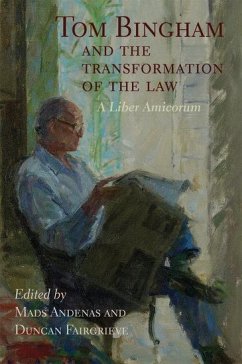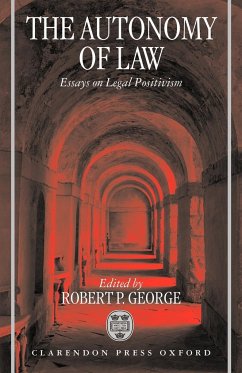
Leading Cases in the Common Law
Versandkostenfrei!
Versandfertig in 1-2 Wochen
88,99 €
inkl. MwSt.

PAYBACK Punkte
44 °P sammeln!
This book offers a collection of essays by arguably the most popular legal historian writing today. Most of the essays have not been previously published, and those which have appeared previously have been re-written to make the collection read more coherently. The collection is centred upon the theme of the leading case - a case where the judgment has established a long-lasting or far reaching precedent in common law, and the author has selected a number of these cases in order to illustrate how the precedents established by the cases have little or nothing to do with the trials themselves.
Brian Simpson's new book addresses the phenomenon of the leading case--the judicial decision which acquires a timeless quality, coming the stand for some legal idea, or principle, or doctrine thought to be central to the casuistic tradition of the common law. How do such cases arise in the first place? Can we tell why they were decided as they were? How do they come to achieve their special status? By a detailed and meticulous investigation of their original historical context, and by tracing out their strange intellectual history, this book develops a highly original approach to the study of judicial decisions; one which represents an attack upon the deeply anti-empirical tradition of academic legal writing. Written in an unpretentious style, and in a manner which assumes of the reader no special legal expertise, this book will appeal to all those who are interested in the cultural and social history of the law and of legal thought, and who like to combine intellectual stimulation with the innocent pleasure of a good read.














